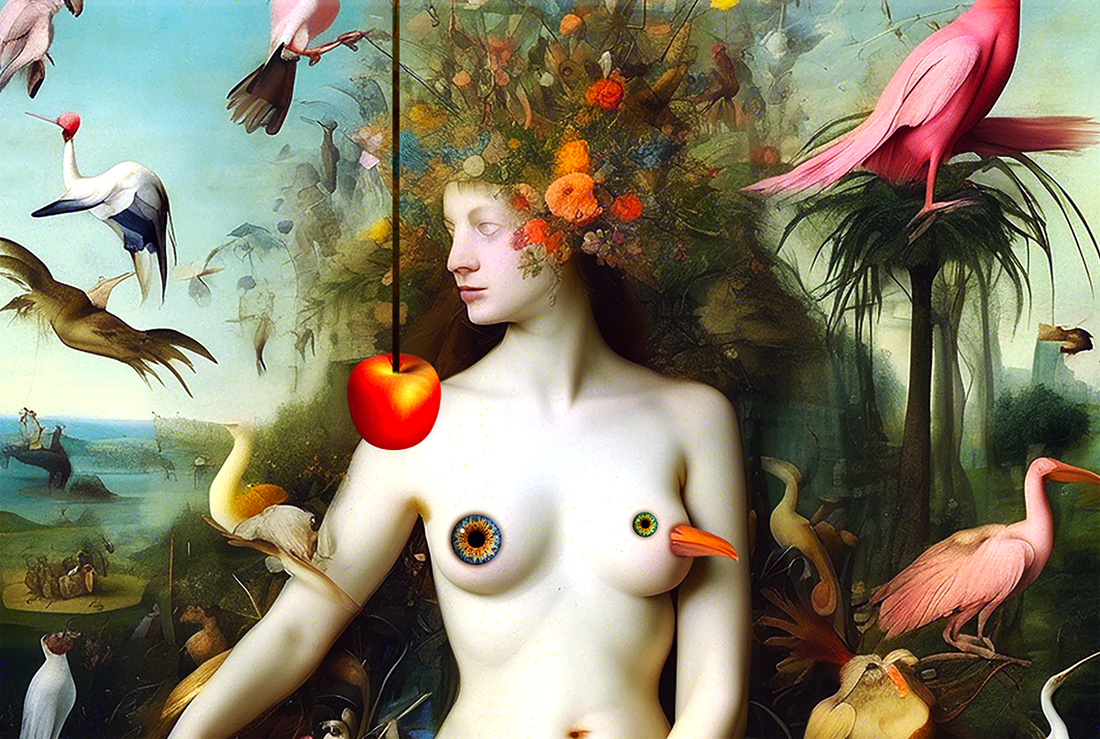
Eva's Collection
Eve in the Imperfect Garden
By Gustav De Gaacz
In this new collection of images, we have focused on digital and surrealist representation in two well-known styles: the Renaissance and the image of Eve in a Boschian paradise – inspired by Hieronymus Bosch, or "El Bosco", as he is known in Spanish. His work can be seen at the Prado Museum in Madrid and is part of the late Gothic period.
The image of an Eve surrounded by "Boschian" animals – distorted creatures as symbols of the personal tragedy that results from the lack of absolute obedience to an omnipotent God – leads us to create an antithesis of what true paradise would be, if the divine voice had been followed and the value of knowledge had been lost. Eve wanted to know more – and was punished for it.
These new images are pure art and a new interpretation of the biblical story of the fate of the biblical woman. They serve as a source of antithetical iconography to the idealized image of the good, the spectacularly better, and the beautiful, according to Bosch's terrifying dichotomy between hell and paradise.
In the images created, Eve is not perfect – an inherent human quality. She is punished and destined to become something imperfect, like the animals in Bosch’s works. This imperfection is the real punishment that society tries to correct through the creation of a new woman: extremely altered, objectified, almost perfect, surgically modified – a false and synthesized concept.
An ideal female model that is passed on to new generations, and also influences the male. Today, it is common for women to flaunt their cosmetic surgeries as a sign of personal sacrifice – to regain the beauty that God once gave them, before they bit into the apple.
Society, shaped by deterministic religious values, often shows a kind of disgust for the natural female appearance – because God degraded woman from sublime beauty to an imperfect creature who gives birth in pain. For many, therefore, a woman’s natural appearance is the very image of this religious punishment – nothing to be proud of.
We also know that in the beautiful creations of the Renaissance – based on biblical stories – other living beings are omitted. The imperfect beings that Bosch created as punishment for those who deviated from the doctrine are there, surreal, still present. They have not disappeared – and are as imperfect as humans themselves.











